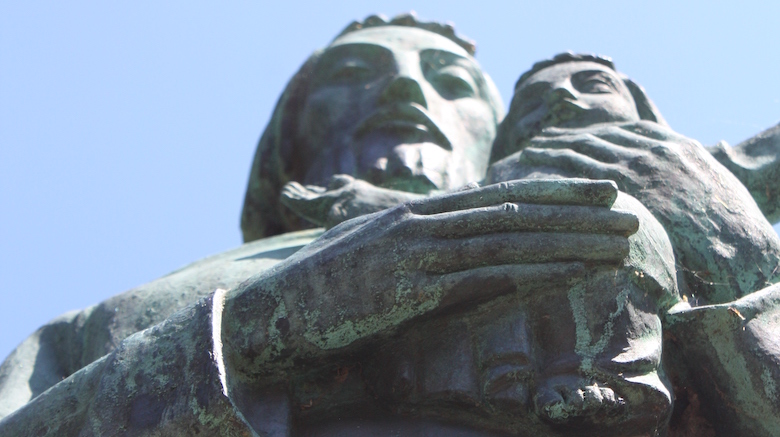The U.S. Federation of the Sisters of St. Joseph is educating the public about restorative justice and how to use the practice to tackle the issue of racism and other social issues.
In June, the U.S. Federation of the Sisters of St. Joseph released a statement on racism and a commitment to effectively address the issue. The Sisters are living out that commitment by hosting a four-part series on restorative justice, it’s relationship to the CSSJ charism, and how individuals can incorporate restorative justice into their daily lives and ministries.
The first workshop, held virtually Sept. 24, featured presentations by Caitlin Morneau and Krisanne Vaillancourt Murphy of Catholic Mobilizing Network and Sister Rose McLarney, a board member at Journey to New Life, an organization that supports prisoner re-entry programs by using a restorative justice approach.
The speakers gave the more than 130 people in attendance — including Sister Elizabeth Hill, former St. Joseph’s College president; Sister Susan Wilcox, coordinator of peace, justice and integrity for the Congregation of the Sisters of St. Joseph’s in Brentwood and former director of campus ministry at SJC Brooklyn; and Sister Suzanne Franck, Ph.D., associate professor and director of religious studies at SJC Long Island — an overview of restorative justice and its relationship to the CSSJ charism.
Reflecting on Restorative Justice
Restorative justice is a term that Morneau — a lifelong Catholic — was unfamiliar with until after she graduated from college. She said she was surprised she was so unfamiliar with the term, which embodies the way people understand crime and harm in terms of the people and relationships impacted — rather than the law or rule that was broken. Restorative practices instead aim to repair harm through transformative encounters, modeling Jesus’ reconciling way, she explained.
“When I learned about restorative justice, I sensed it deeply in my being; it’s alignment with my faith,” Morneau said. “I found myself shocked, and honestly maddened, thinking, ‘why have I not heard about this before?’
“As I learned more, and engaged more, I came to better understand some of its theological underpinnings and the many applications that restorative justice practices can offer in ministry settings,” she continued. “That’s what personally fuels and inspires me in this national work of education, formation and network building among Catholics, and with the wider restorative justice movement.”
Sr. Rose said she has witnessed the positive results of restorative justice and reflected on a circle she ran that included police officers and gang members.
“They said they would never agree to being in the same circle, but their experience was so powerful to them that they really appreciated it and it changed them,” Sr. Rose said. “The charism propels us; it’s part of our every day life. The characteristics that are in common relationships are what’s important to stay connected.”
Continuing the Conversation
Presenters stressed that the conversation about restorative justice at the workshop is just the beginning of the journey to improving racism and other social issues.
The U.S. Federation of the Sisters of St. Joseph invites the public to join the four-part series. The next virtual workshop, “Racism and Restorative Justice in Catholic Institutions,” is set for Saturday, Oct. 10, at 2 p.m. It will feature presentations by Dr. Shannen Dee Williams of Villanova University and Sister Melinda Pellerin of Springfield, discussing racism within Catholic institutions, historical truth telling, and practical reparations necessary to move forward.
The workshop will discuss antiracism work within the charism and offer attendees an opportunity to ask questions and discuss the topic. Registration for the event is open to the public.
The workshops will continue in November and December, though dates have not been announced yet.
In the meantime, the U.S. Federation of the Sisters of St. Joseph compiled a list of books and articles about restorative justice, organizations focused on restorative justice to get involved with and other related workshops and conferences to consider attending.
Check out the list here.

